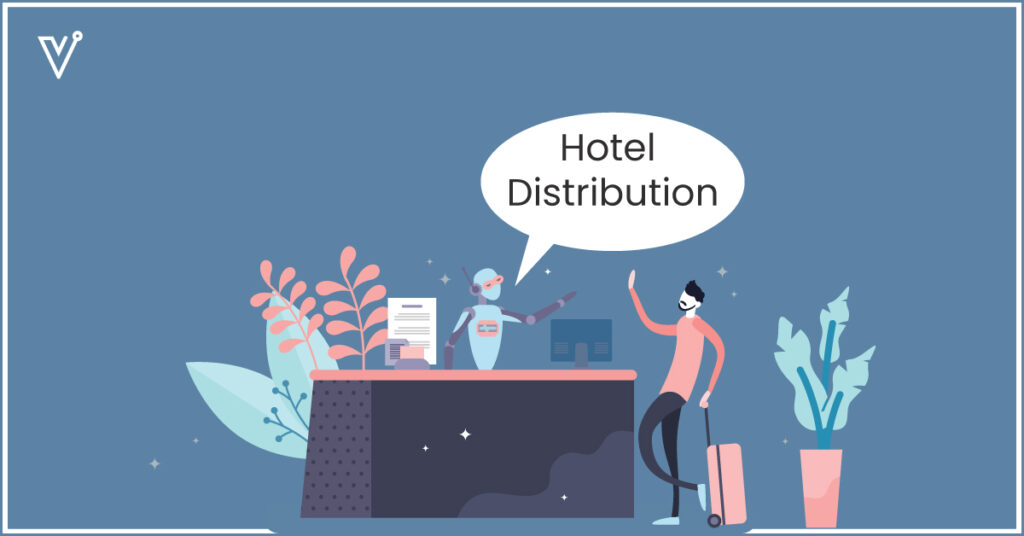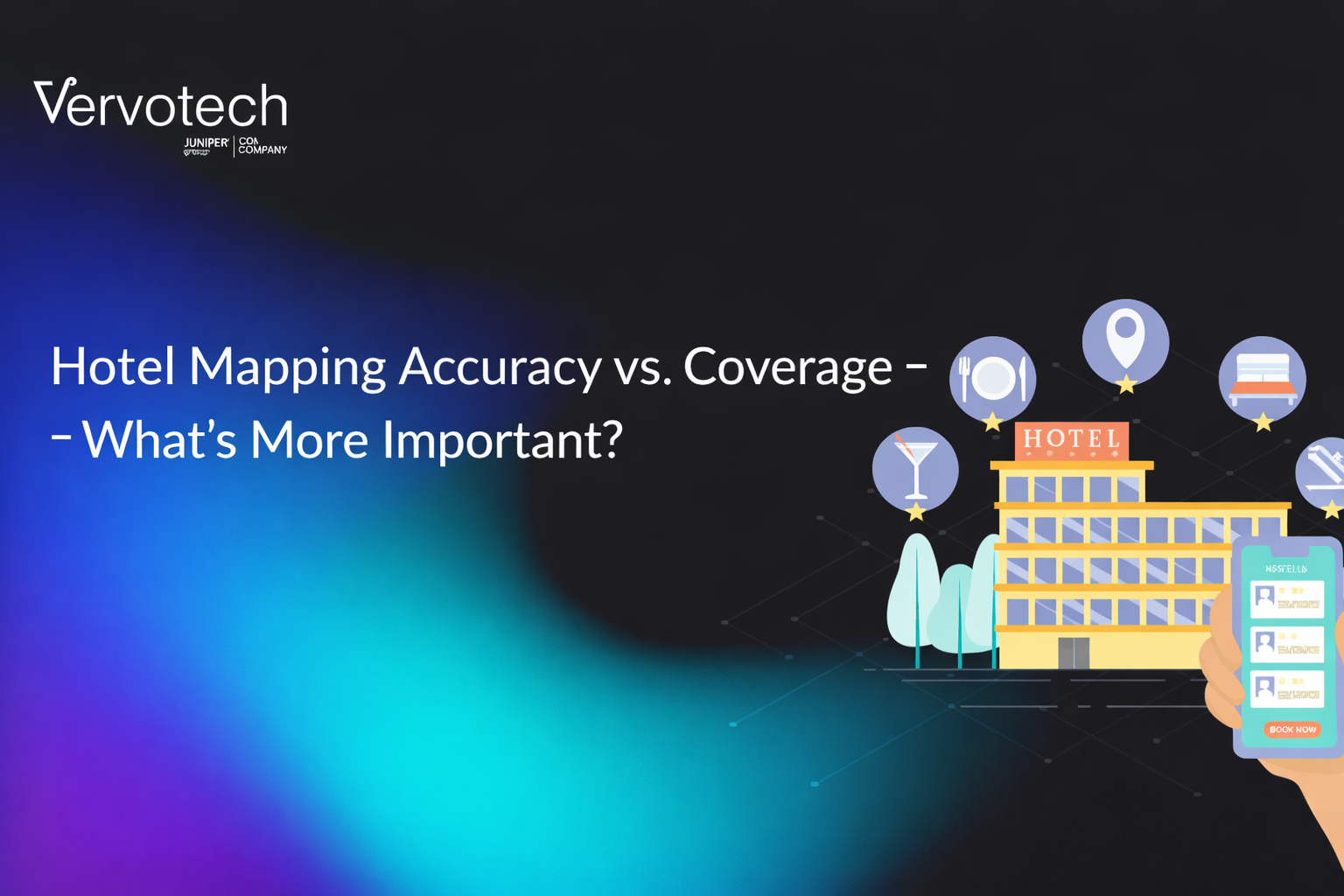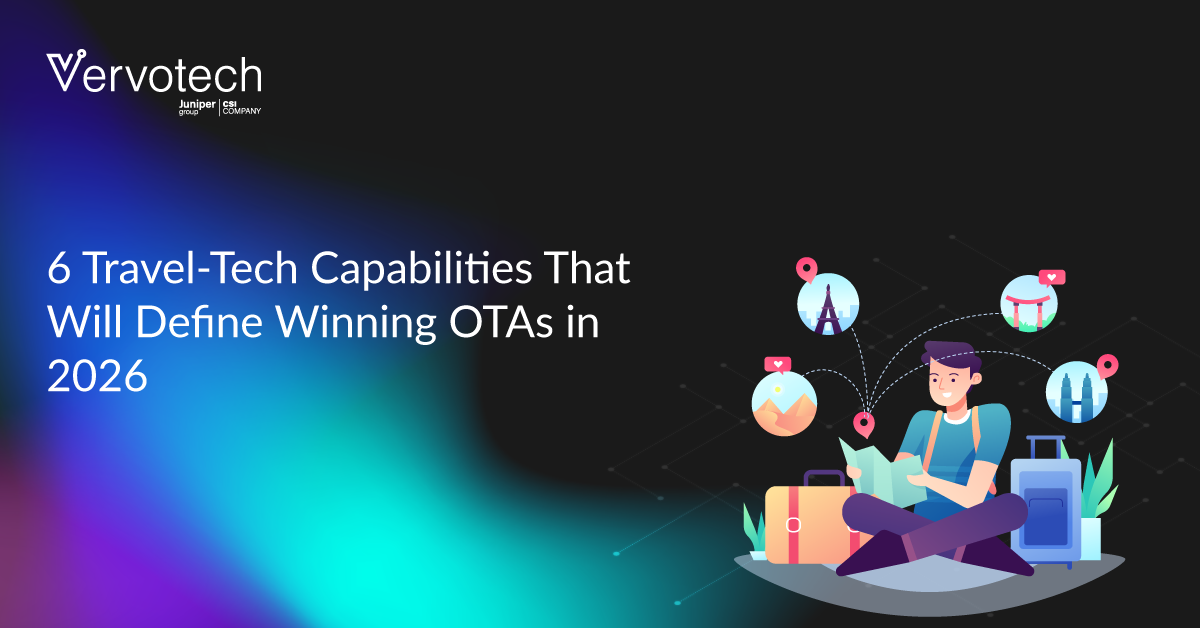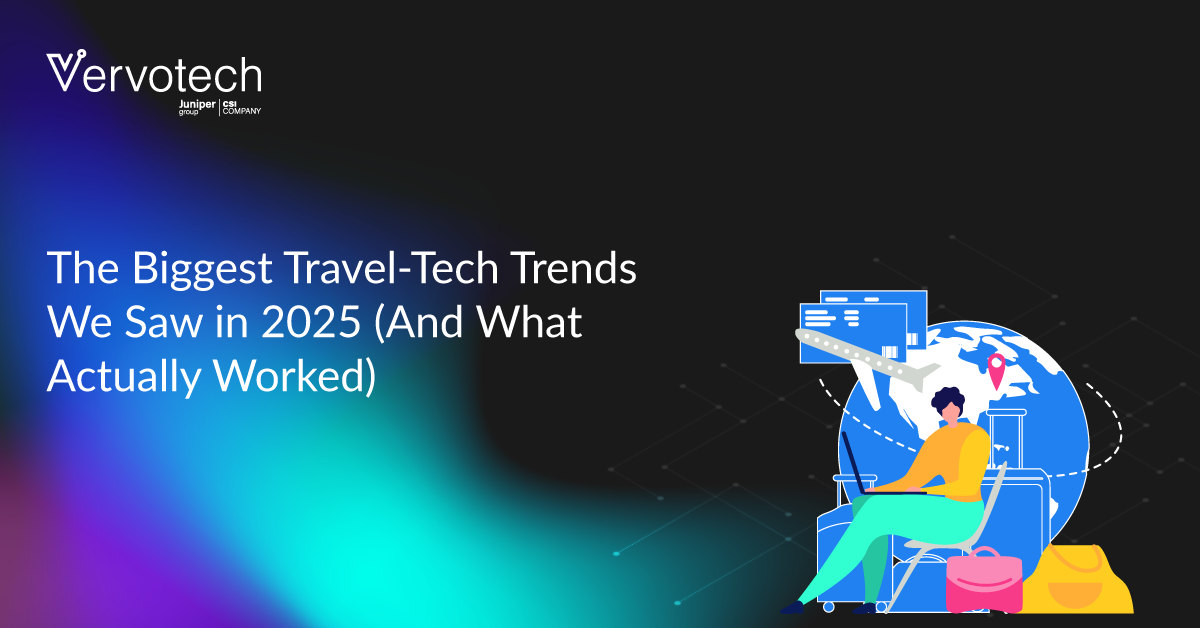In the travel industry, customer experience plays a paramount role in driving business growth. Every travel business strives to deliver the best customer experience, which results in customer loyalty and brand reputation. Seamless user experience has become the need of the hour. However, the hoteliers and accommodation segment often face the brunt of dissatisfied customer experience due to repetitive or missing hotel data information.
8 out of 10 website visitors land on a travel booking website, search for a hotel property or resort, and abandon the site without completing the booking. One of the main reasons for this is showing up of the same hotel property multiple times with different pricing.
But why does this happen? Let’s delve deeper into the complex hotel distribution system.
Table of Content
- Hotel Distribution System
- What is Hotel Data Duplication?
- Impact of Hotel Data Duplication
- How to approach Hotel Deduplication with AI?
- Hotel Deduplication with AI Mapping
- Conclusion
Hotel Distribution System

Hotel distribution begins with a property management system (PMS) which gets connected to a central reservation system (CRS). A CRS is an online hub that gathers complete hotel data such as hotel address, geocodes, ratings, rooms, phone numbers, descriptive and illustrative content. From the CRS the data is then fed between the PMS and the major distribution channels such as global distribution system (GDS) (Amaedus, Sabre, Travelport), OTAs (Expedia, Trivago, Booking.com), metasearch sites (Skyscanner, TripAdvisor, Google), tour operators, bed banks, etc.
Also Read – Hotel Mapping Accuracy vs. Coverage – What’s More Important?
What is Hotel Data Duplication?
Let’s first understand hotel data duplication and then offer a solution to the bottleneck.
Typically, hotel data includes hotel names, addresses, geocodes, star ratings, phone numbers, hotel facilities, images, etc. Approximately, 6 resellers are involved in selling hotel data to the customers. As the hotel data gets widely distributed amongst various channels, booking partners there is a possibility of the same data being displayed differently. This is known as hotel data duplication. This can easily confuse the visitor creating a bad user experience and jeopardizing the hotel’s reputation.
Due to the involvement of several sellers, booking partners, the hotel content quality deteriorates, and unfortunately, hoteliers or resort owners have no control over what’s being displayed about their hotel property on third-party booking channels.
Read more: How Duplicate Hotel Listings Drop Sales of Travel Booking Websites?
Impact of Hotel Duplication
 Duplicate hotel data is an industry-wide challenge and can have a lasting effect on the overall business growth. Some of the impacts are:
Duplicate hotel data is an industry-wide challenge and can have a lasting effect on the overall business growth. Some of the impacts are:
- Poor customer experience
- Negative brand reputation
- Missed sales opportunities
- Wasted marketing efforts
1. Poor customer experience
According to new research from Expedia Group, 80% percent of French travelers and nearly 90% of UK travelers say photos of the hotel room play important role in their purchase decision. If the traveler encounters the same hotel photos repeated on the booking website, it can confuse them and impede the platform’s ability to fulfill customer experience.
2. Negative brand reputation
Data is the element that your brand credibility is built on and duplicate hotel data can easily harm your brand reputation. If your database has multiple records of a single hotel property, it can mislead your website visitors and make your potential customer think twice before visiting your site again.
3. Missed sales opportunities
Poor quality data filled with inconsistent, inaccurate or duplicate records in your database, can negatively impact your sales strategy. Duplicate data can result in missed sales opportunities which will jeopardize your business revenue.
4. Wasted marketing efforts
Every travel business works on creating the best hotel marketing strategy to boost online booking rates. But if your visitor experiences duplicate information on your platform, it can easily break your robust marketing efforts.
How to approach Hotel Deduplication with AI?
How can the hospitality industry resolve this challenge and deliver a better customer experience?
An ideal approach to solve this bottleneck would be to hire trained content managers and manually remove duplicate data from databases. But this can be laborious, time-consuming and an expensive task.
Hotel mapping is the answer to data duplication. It is the process of aggregating hotel properties from multiple sources into one entity. Hotel mapping creates a unique property code that helps identify each individual hotel. This creates standardized content for third-party channels so that they can sell the right room at the right property to the right customer.
Currently, there is an advancement in hotel mapping technology. It leverages the power of AI and machine learning to remove duplicate hotel inventory across various distribution channels and uniquely map content with maximum accuracy and coverage.
Hotel mapping ensures unified data that ensures accurate content distribution to booking channels globally. With hotel mapping, hoteliers can optimize and have better control of their hotel data. They can manage and distribute standardized descriptive content to their booking partners easily and efficiently.
Hotel Deduplication with AI Mapping
 There are several advantages of hotel mapping. Some of the known benefits are
There are several advantages of hotel mapping. Some of the known benefits are
- Better control and visibility of hotel data
- Better content quality
- Improved look-to-book ratio
- Up-to-date hotel property listings
- Improved user experience
- Better return on investment (ROI)
- Increased revenue
Read more: Curated Content in Modern Travel & Hospitality
Conclusion
Hotel data duplication is a pressing issue for everyone in the travel industry. It can quickly lead to unsatisfied customers, wasted budgets, and loss in revenue. Hotel mapping is the ideal solution to turbocharge your online presence and distribute content efficiently without data duplication. Several tech companies meet the growing market demands and offer bundled or stand-alone hotel mapping solutions. With the right tech partner, hoteliers or suppliers can forget about hotel data duplication and focus on delivering a stellar guest experience.







